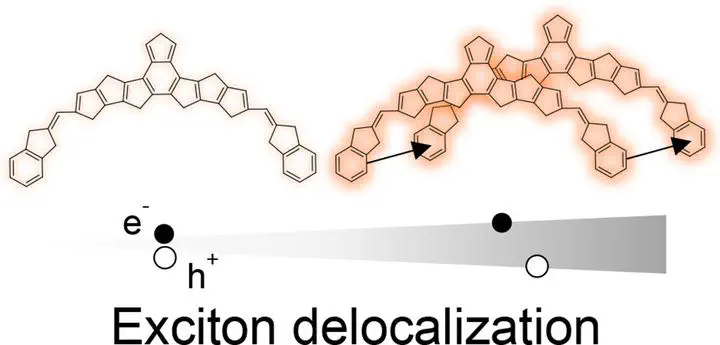Solid-State Packing Controls Exciton Delocalization and Photophysics in Nonfullerene Acceptors

Abstract
We engineer molecular packing in five derivatives of the nonfullerene acceptor Y6. Using transient absorption spectroscopy, we find evidence of the formation of a delocalized exciton in addition to the local exciton in neat films of the acceptors. Following selective photoexcitation of the acceptors in donor/acceptor blends with D18, we observe anion formation on the same timescale as in neat acceptor films, suggesting that D18 is a bystander to charge generation after photoexcitation of the acceptors. We quantify the recombination kinetics of the delocalized excitons with the monomolecular recombination constant (a) and find that both the hole transfer yield and the internal quantum efficiency in photovoltaic devices increase for acceptor films with lower a. In A1, relatively localized excitons with a limited charge transfer character have fast recombination kinetics (a = 3.2 x 1010 s-1), leading to the lowest IQE (83.7%). In T1, more delocalized excitons with stronger charge transfer character have slower recombination kinetics (a = 5.3 x 109 s-1), leading to a higher IQE (97.2%). Grazing incidence wide-angle X-ray scattering of pi-pi stacking regions reveals that the tendency to pack face-on is a key driver of exciton delocalization across acceptors with similar molecular packing. We anticipate that this newly identified structural lever will help propel organic photovoltaics toward 20% efficiency.